Description
Sports Acupuncture 6-Pack Bundle: Core Principles,Tennis, Golf, Field Sports, Martial Arts, and CrossFit
This bundle gives you the core principles of Sports Acupuncture including assessment, treatment, 6 fascial lines of tension, etc., as well as the treatment and prevention for athletes of 4 common types of sports:
- Core Principles
- Tennis
- Golf
- Field Sports (Lacrosse, Field Hockey, Soccer)
- Martial Arts
- CROSSFIT
Price of all webinars separately: $834.00
All webinars approved for NCCAOM PDAs
All webinars pending approval our approved for California CEUs, category 1, CEP#1721
Purchase includes lifetime access
No refunds
After purchase you can find the courses in ‘My Account’
1. Sports Acupuncture Core Assessment & Treatment Principles
Record date: November 30th, 2018
Length: 3 hours 15 minutes
Approved for 3 NCCAOM PDAs, Category PE-CW
No refunds
In this webinar, Anthony brings assessment, motor points and electro-acupuncture to the specialty of sports acupuncture. Acupuncture is much more than injury healing; performance gains and injury prevention are just as important (and maybe more so) the amateaur, professional, or weekend athlete. Proper assessment can reveal underlying imbalances and weakness that the athlete may not even be aware of, yet these imbalances can lead to injury or interfere with maximum potential/performance. Go beyond pain relief and learn the real power of acupuncture in this webinar.
Course outline:
Learning and understanding 6 lines of fascial lines of tension: anterior and posterior torsional, anterior and posterior linear (clavicular mechanics), lateral vector, deep vector. This section covers the directional tensions of common groups of muscles and presents them in a way to that makes them easier to understand.
Understand how three simple tests can reveal weaknesses/imbalances:
- The squat, the push up, the wall test
Ways of checking all 6 vectors of tension
The acupuncture motor points packages that are used in treating athletes
- Upper Kinetic Chain Package
- Hyopogastric Abdominal Package
- Lower Kinetic Chain Package
Learn the chaos of gait and what it means
Review the joints of the foot and ankle; learn the significance/need of treating these
Importance of adductor and abductor hallucis
Electro-Acupuncture that can maximize performance:
- Perfusion treatment
- Fascial-based techniques
- Manual Releases of QL and Psoas
2. Assessment & Treatment of Common Golf Injuries
Record Date: July 31, 2021
Approved for 2.5 NCCAOM PDAs Category PE-CW
Course Outline:
LECTURE
•What are the general movements of this sport?
•Through which planes do these movements occur?
* What are the gross stresses put on the body?
* What are the specific movements of this sport?
* Breakdown the mechanical stressors of each specific movement.
* Learn the agonist/antagonist of each movement
* Compartmentalize the areas which absorb the most stresses in this sport.
* What are the most common injuries in this sport?
ASSESSMENT
•What are the vectoral lines of tension involved in the specific movements of this sport?
•How do we streamline MSK assessment in this sport?
TREATMENT
1. How do we prioritize our treatment in this sport?
a. stabilize girdles
b. address mirrored VLT
c. address accessory movement via EPE
2. What does treatment look like?
a. motorpoints
b. ILT, 2NT, alternating frequencies
c. High frequency to joints
d. Soft tissue manipulation
3. Injury Prevention
a. exercises
b. training regimen
c. imagery/physical hybrid practice
Q & A
3. Assessment & Treatment of Field Sports Injuries (Lacrosse, Field Hockey, Soccer)
Record Date: August 14, 2021
Approved for 2 NCCAOM PDAs, category PE-CW
Course Outline:
LECTURE
•What are the general movements of this sport?
•Through which planes do these movements occur?
* What are the gross stresses put on the body?
* What are the specific movements of this sport?
* Breakdown the mechanical stressors of each specific movement.
* Learn the agonist/antagonist of each movement
* Compartmentalize the areas which absorb the most stresses in this sport.
* What are the most common injuries in this sport?
ASSESSMENT
•What are the vectoral lines of tension involved in the specific movements of this sport?
•How do we streamline MSK assessment in this sport?
TREATMENT
1. How do we prioritize our treatment in this sport?
a. stabilize girdles
b. address mirrored VLT
c. address accessory movement via EPE
2. What does treatment look like?
a. motorpoints
b. ILT, 2NT, alternating frequencies
c. High frequency to joints
d. Soft tissue manipulation
3. Injury Prevention
a. exercises
b. training regimen
c. imagery/physical hybrid practice
Q & A
4. Assessment & Treatment of Common Tennis Injuries
Record Date: August 28th, 2021
Approved for 2 NCCAOM PDAs, category PE-CW
Course Outline:
LECTURE
•What are the general movements of this sport?
•Through which planes do these movements occur?
* What are the gross stresses put on the body?
* What are the specific movements of this sport?
* Breakdown the mechanical stressors of each specific movement.
* Learn the agonist/antagonist of each movement
* Compartmentalize the areas which absorb the most stresses in this sport.
* What are the most common injuries in this sport?
ASSESSMENT
•What are the vectoral lines of tension involved in the specific movements of this sport?
•How do we streamline MSK assessment in this sport?
TREATMENT
1. How do we prioritize our treatment in this sport?
a. stabilize girdles
b. address mirrored VLT
c. address accessory movement via EPE
2. What does treatment look like?
a. motorpoints
b. ILT, 2NT, alternating frequencies
c. High frequency to joints
d. Soft tissue manipulation
3. Injury Prevention
a. exercises
b. training regimen
c. imagery/physical hybrid practice
Q & A
5. Assessment & Treatment of Common Martial Arts Injuries
Record Date: September 11, 2021
Approved for 2 NCCAOM PDAs
Course Outline:
LECTURE
•What are the general movements of this sport?
•Through which planes do these movements occur?
* What are the gross stresses put on the body?
* What are the specific movements of this sport?
* Breakdown the mechanical stressors of each specific movement.
* Learn the agonist/antagonist of each movement
* Compartmentalize the areas which absorb the most stresses in this sport.
* What are the most common injuries in this sport?
ASSESSMENT
•What are the vectoral lines of tension involved in the specific movements of this sport?
•How do we streamline MSK assessment in this sport?
TREATMENT
1. How do we prioritize our treatment in this sport?
a. stabilize girdles
b. address mirrored VLT
c. address accessory movement via EPE
2. What does treatment look like?
a. motorpoints
b. ILT, 2NT, alternating frequencies
c. High frequency to joints
d. Soft tissue manipulation
3. Injury Prevention
a. exercises
b. training regimen
c. imagery/physical hybrid practice
Q & A
6. Assessment & Treatment of 7 Common CROSSFIT Injuries Using Electroacupuncture and Manual Techniques
Record date: October 23, 2021
Length: 2 hours
Approved for 2 NCCAOM PDAs
CROSSFIT is a very common type of athletic training used for personal health as well as competition. Like other types of training or sports activities, there may be injuries, imbalances, and hinderance to optimum performance for a variety of reasons. In this webinar, Anthony will show you how to treat injuries common to CROSSFITTERS, as well as how to prevent injury and the effects of overtraining and help these patients stay active, continue doing what they love, and perform at the highest level possible.
Class outline:
INTRO
•What is CROSSFIT?
•What is Interval Training?
•What is Overtraining?
PRINCIPALS OF INJURY
•Muscle Physiology
•Cumulative Strain Impacts
•Training Beyond Capacity (Overtraining)
PERIPHERAL EFFECTS OF TRAINING TRAUMA
•Function of noxious stimuli
•Motor inhibition
•Principals of Mal-adaptation
7 INJURIES ADDRESSED
* Wrist Strain
* Lower Back Strain
* Tennis Elbow
* Anterior Knee Pain
* Shoulder Injury
* Achilles Tendonitis
* Neck Injury
ASSESSMENT
•Functional Testing
•EXSTORE Testing
•Overtraining Palpation
TREATMENT
•What is Adaptive Potential?
•How do we extract it from the CROSSFIT athlete?
•Principals of Treatment Presented
CLINICAL DEMONSTRATION
•Live Patient Presentations
Q and A
About Dr. Lombardi:
Dr. Anthony Lombardi is a 2002 graduate of the New York Chiropractic College and McMaster Contemporary Medical Acupuncture program in Hamilton, Ontario, and has been practicing acupuncture for 19 years. Upon graduation, he founded Hamilton Back Clinic and since then has become a private consultant to athletes in the NFL, CFL, and NHL. Over the past 15 years Anthony has given over 100,000 acupuncture treatments. In addition to practicing, Dr. Lombardi was also an instructor in the Contemporary Medical Acupuncture Program at McMaster University from 2004 to 2013. He developed his EXSTORE® system, which he currently teaches along with motor points and electro-acupuncture, to physicians and practitioners the world over. He regularly writes and contributes articles on motor points in the Canadian Chiropractic and Chiropractic Economics magazines. Dr. Lombardi’s library continues to grow, with some 70 webinars available covering a variety of MSK and pain conditions, as well as patient practice management topics. He holds live seminars throughout the U.S. and Canada.
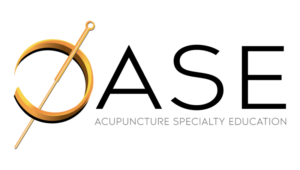
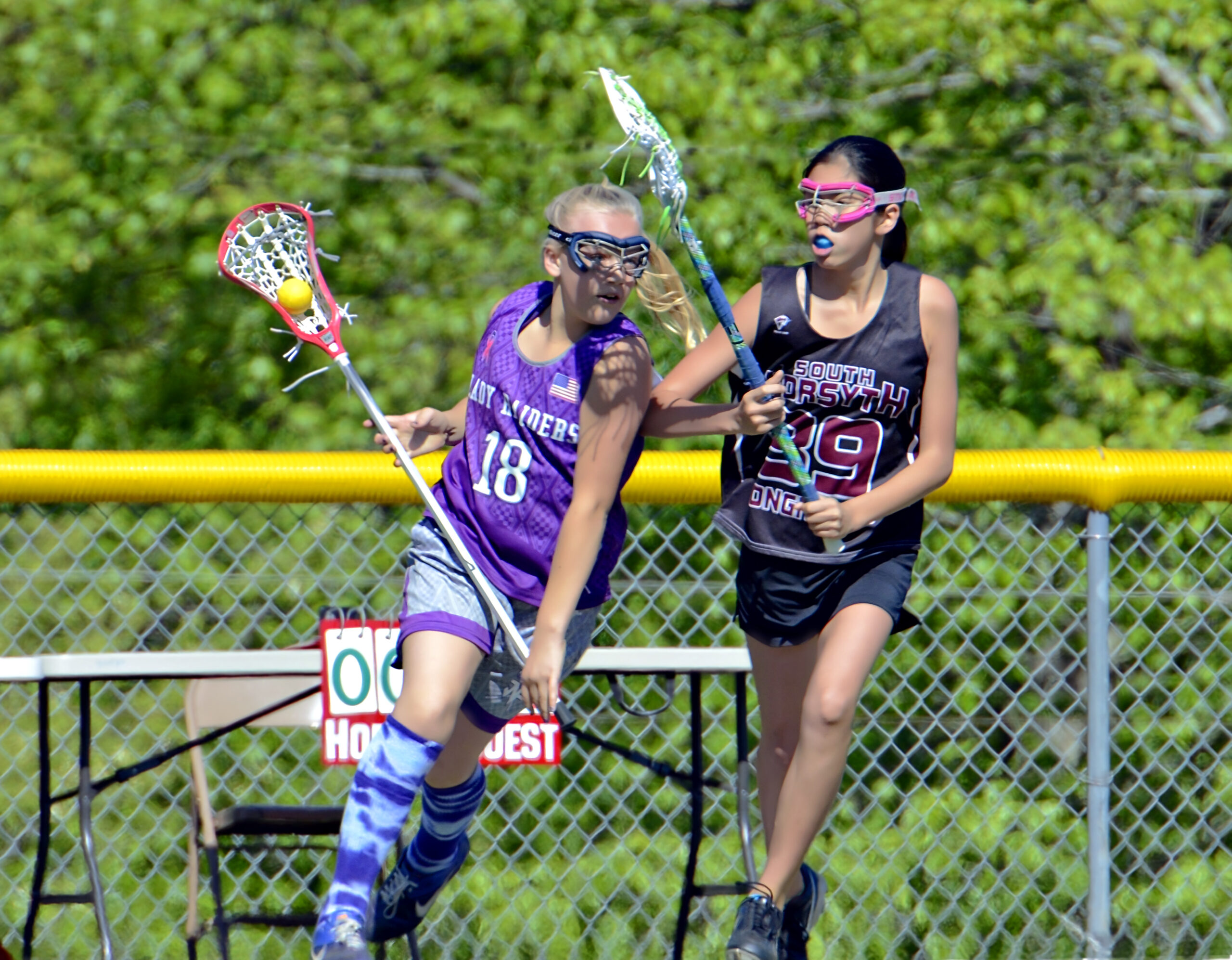
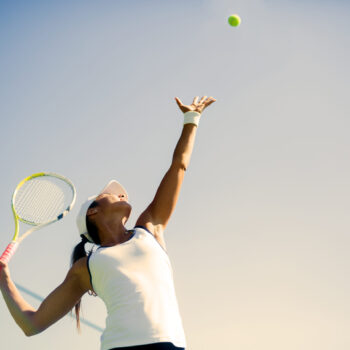
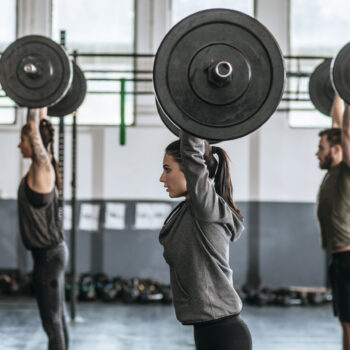
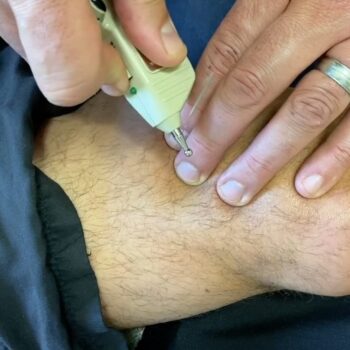
Reviews
There are no reviews yet.